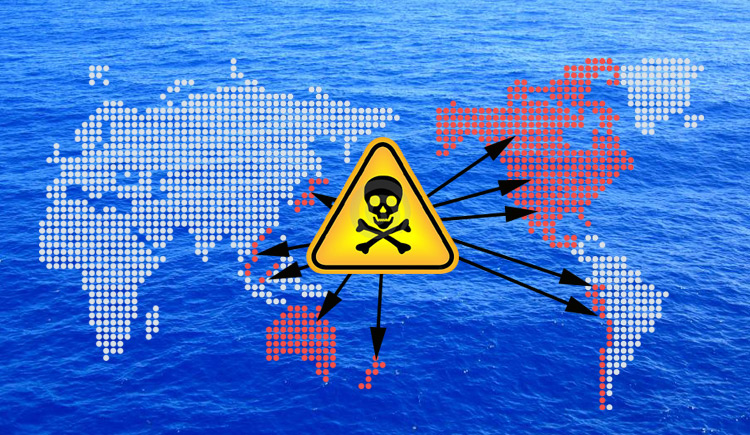Mythical TPP Benefits: Financial Services
Let’s examine the Trans-Atlantic Partnership treaties for what they are, corporate giveaways. It may be obvious, but intentions really don’t matter in a contract, only the words and definitions. Let’s explore how this work away from the rhetoric.

I can think of many laws that are worded vaguely by accident. Many others are deliberately vague on the assumption that the definitions will be refined later, by a court. This is how all tax loopholes are created, and then exploited by a corporation, until it becomes so egregious or systematic, that lawmakers feel compelled to curb the activity. We need to stop viewing laws and trade deals with rose-tinted glasses, and start picking them apart like a defense lawyer.
So one area that seems like a no-brainer to TPP advocates is financial services, but as someone involved in financial services myself over the past 5 years, holding both investment and insurance licenses, and having been a day-trader of stocks for several years prior to that, I can tell you this is pure fallacy. Financial services, whether banking, insurance, or investment, can admittedly generate public utility. The part no one addresses is the business model, it already serves to concentrate wealth in the hands of the few, scaling it up doesn’t change that.
Exporting financial services can come in two flavours: one is to replicate by setting up branches in other countries, specifically to offer traditional banking services; the second is to offer complex financial products, tax shelters or off-shore trusts, selling high-fee speculative instruments, and underwriting insurance to these other countries, citizens and corporations. We already know many banks such as HSBC have been found guilty of money laundering, and price fixing of precious metals, and other asset swaps to bypass sanctions, despite being illegal in every jurisdiction they operate. This all means we should be extremely skeptical about all financial business operations involving multiple countries.
In the case of scenario 1, merely replicating ScotiaBank branches doesn’t employ more than a handful of Canadians as trainers or managers, most of whom will be entirely temporary workers. Subsequently, when non-Canadian ScotiaBank branches end up training sufficient numbers of employees, they can use provisions in the TPP to bypass immigration/visa programs to bring foreigners into Canadian branches as well, at lower pay. We might find ourselves worsening the catastrophic work-visa policies of allowing employers to shuttle employees between local and foreign operations, while demanding ever more subsidies to do it. This “problem” as it turns out, actually has great financial rewards for the largest multi-national corporations, the same corporations that like to bust unions, and influence politics, while hungry small and medium sized businesses suffer.
The scientist/activist Michio Kaku has lectured about America’s education failure, namely it’s perpetual inability to produce quality STEM graduates, and rightfully points out that H1B visas “solve” this problem. He doesn’t seem to think that this is actually the result of deliberate policies to drive down the collective intelligence of the country, slowly eroding the awareness levels of workers, and disenchanting students from digging too deeply into the morality or ethics of modern society. There is however ample evidence that this is indeed deliberate, that it has been planned, and implemented in successively worse stages since the Carter administration four decades ago. Common Core being the latest assault on students, though skyrocketing tuitions have done a fine job on their own.
Then there’s the issue of keeping profits generated abroad. It’s easy to imply that if TD-Canadatrust opened up branches in Chile, that it would yield taxable corporate profits in Canada, but that’s not true. They would continue to store their profits overseas, and if possible continue funnelling money out of Canadian revenues to fund all expansion projects overseas, reducing the taxable profits of the parent entity. There’s a reason Apple and other tech giants are getting flack for headquartering in Ireland, Apple Inc. alone is sheltering around $200 billion in taxable income overseas. There may be short periods of enhanced earnings within the parent nation, but the overwhelming majority of profits from any satellites would only help the shareholders, which creates no economic activity or jobs.
The most serious problem with any North American bank or insurance company expanding to Vietnam or Chile would be the increased capital risk. They don’t have the same socio-economic stability, or even the same level of enforcement for what legislation already exists. They have higher instances of violent clashes between authorities and various cartels, and hugely increased risks to environmental disasters like earthquakes or tsunamis. Do we want that kind of exposure? But even optimistically, how much money can we make selling services to a country where the average worker earns less than $10 per day?
https://www.youtube.com/watch?v=L51mtRSPPIo
Remember the sub-prime banking crisis in the US, all of it was insured based on flawed risk models, and re-insured further by reckless underwriters, then rated AAA by corrupt rating agencies. Remember how well AIG and others fared when those policies were asked to pay? They couldn’t, so the Obama administration had to step in and nationalize the losses. Who is on the hook if things go really really wrong with our financial entities? A good lesson to revisit is the collapse of the Bank of Cyprus, less than one year from bailout to total collapse, only one week from discussing options to heart attack. Just one year prior to it’s collapse in 2013, Euromoney magazine voted them the bestest private bank in Cyprus, who knew?
In late-june 2012, Cyprus officially requested a bailout from the EU, by that november they had reached agreement, but things were put on hold for late-february 2013 elections. March 16th, mere weeks after the anti-austerity Communists were defeated, Cyprus announced a confiscation regime for savings to re-capitalize the banks, a “bail-in” of no more than 9.9% for high value accounts, but the banks ran out of reserve money, and went on holiday. In an emergency session on March 19th, the bill was defeated, yahtzee! Without an agreement, what happened next is pure panic mode by the government. They try again for a “bail-in” agreement unsuccessfully, extending the bank holiday, and imposing 100EUR withdrawal limits on the anxious customers trying to empty their accounts by ATM. The next day the government agreed finally. On March 25th, anyone with deposits at the Bank of Cyprus lost 40% of their savings, others who banked with Laiki took an even greater 60% haircut.
The next question to ask is, why now? Why the rush to globalize the financial world, while in the midst of a multi-faceted currency wars across Europe and Asia, with China pivoting back on it’s own economy, with collapsed commodity prices due to collapsing exports around the world? This is the rational question to ask, but whereas we the people are rational, the psychos in charge of influencing public policy are clearly not. They want to see a world where the rights of the people don’t exceed the rights of the corporations, they want to see a world where any exercise of democracy can’t threaten corporate profits, and they ultimately wouldn’t mind entrenching their power for generations to come.
If we really boil it down, exporting financial services will generate no meaningful tax revenue, the financial corporations are masters of financial manipulation, and will only burden us serfs with backstopping the extreme risks they take. It will also not reduce unemployment meaningfully, unless temporary call-centers or replacement training programs are somehow meaningful. Our entire financial export business would be driven by multi-national corporation agendas, and their only “interest” would be to generate more profit, something they couldn’t do paying even more tax.
What good is a free-trade deal, if only the investors gain?
Leave A Comment
You must be logged in to post a comment.

